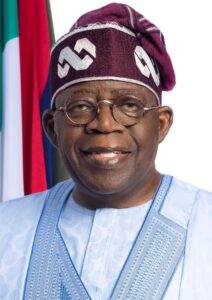
Nigeria’s year of tough choices
By Mohammed Idris
The border between Nigeria and Benin was, for decades, one of the busiest crossings in Africa. Thousands of trucks each year would transit, taking precious cargoes of petrol from the largest economy in Africa for sale in one of the smallest. Now that trade has all but stopped.
Usually when cross border trade declines it is a sign of economic regression, but in this case it is the result of sound policy: the ending of a petrol subsidy that was costing Nigeria annually more than the state budget for health and education combined. This was no fault of our neighbours, but rather of our own making, and this $6 billion annual bung was leaking low-cost subsidised petrol sold beyond our borders while the Nigerian taxpayer ultimately paid for it.
For decades politicians of all parties could see this reckless subsidy was killing the economy and the federal budget while being widely abused for profit. Its end was repeatedly promised, but never brought. The same has been the case with floating our currency, the Naira – a decision repeatedly delayed. Instead, we continued to artificially prop up the exchange rate – leading to a further and constant draining of the national budget while creating a black market in money exchange. No country in the world is free of politicians ducking hard political decisions. What is different is that now, nearly a generation after the return of democracy, Nigeria has a president willing put his credibility and re-election on the line to drive through the reforms which are needed.
Since taking office a year ago, President Tinubu has done what he promised on the economy: he has removed the fuel subsidy, floated the Naira, and instituted a raft of other reforms including changes to the tax code and waivers for foreign investors in critical industries including mining, energy, and infrastructure. On security he has moved decisively too, refusing to pay ransoms to kidnappers and – when 137 schoolchildren were taken hostage in Kaduna State in March – instead sent in the military. Days later, every one of the children were released.
Since taking office a year ago, President Tinubu has done what he promised on the economy
Contrast this with ten years ago and the tragedy of Chibok where 276 schoolgirls were kidnapped by the terror group Boko Haram. It took the administration of then President Goodluck Jonathan more than two weeks even to publicly acknowledge the disaster had occurred. By the time the military were sent – after vast national and international outrage – vital hours and days had been squandered: the terrorists, and girls, were gone. Some of the schoolgirls remain missing even to this day.
It is through this kind of disconnect between an elite and the people that has left Nigeria needing such swift and decisive action. It must be recognised that other political leaders have attempted some of the reforms the Tinubu administration has initiated. But they left it late in their terms in office – when political determination and public goodwill is sapped for every politician the world over. They may have had the way, but no longer possessed the will, to drive them through.
Instead, President Tinubu has taken decisive action at the beginning of his first term in office. He is using the political capital flowing from his election as head of state of the world’s fourth largest democracy – and using it now – while the currents remain strongest and public support is highest.
Twelve months since his election the effects are becoming clear. None, including the Nigerian people, thought this would be easy, or pain free. The cost of fuel has, understandably increased – but so has FDI inflows into the country, increasing by close to 70 per cent in the manufacturing sector alone year-on-year in 2024. There is sign of new trust between the Nigerian state and the international community, now the country is finally making the decisions that have been avoided for decades, and they are repaying our determination by making the investments that will create jobs and prosperity for today’s and future generations.
More difficult decisions lie ahead before Nigeria is reshaped and growing economically to the benefit of its citizens and the wider continent of Africa. The administration has joined the Global Methane Pledge, intended to reduce emissions from our oil industry. Oil majors who have worked for years in the country are seeking to divest, and the government is offering them a way to disengage quickly, should they fund the environmental clean-up of their operations. We will see more of this form of partnership in the years ahead.
Nigeria, and our continent, has for too long been held back by our lack of urgency and determination. The tough choices being made today will mean in the years ahead both are better for it.
Mohammed Idris is Minister of Information and National Orientation of the Federal Republic of Nigeria.




